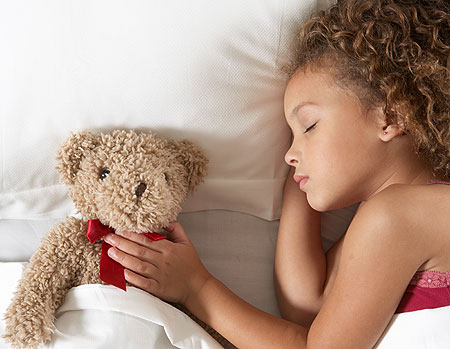The average child sleeps 13 months during the first two years of life. All this sleep helps a baby’s brain develop. As children grow older, they need fewer hours of sleep: 10-12 hours a night for preschoolers, and at least nine hours for school-age children and teens.
Sleep helps us solve problems, form memories, and learn. Inadequate sleep affects how children do in school & impacts their physical well-being.
Two key signs that your teen isn’t getting enough sleep: changes in mood and a slide in motivation.
How to Help Your Child Sleep Well
1. Encourage a consistent sleeping and waking schedule
2. Limit the use of computers, TV, music players, and phones close to bedtime
3. Help your child create a good sleep environment—a place that’s quiet & dark
4. Limit caffeine intake, especially energy drinks
Sometimes a sleep disorder is responsible for poor rest. Sleep apnea can causes pauses in breathing during sleep and leads to daytime tiredness. If you think a sleep disorder may be affecting your child, talk with your child’s primary care provider.


